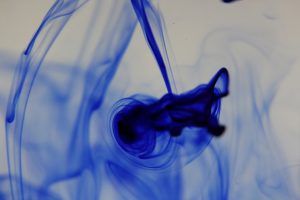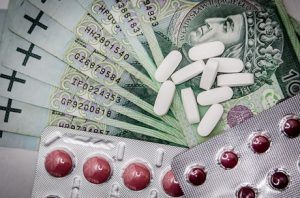Reselling of products affects patent and trademark law as well, and royalty is focussed in several law suits. Violating a company’s sales condition not to resell a patented item does not constitute a patent law infringement – under U.S. law. The U. S. Supreme Court and its universal judgement in case Lexmark and ink cartridges.
Patent Laws Can’t Be Used to Prevent Reselling
 Importers and distributers worldwide might be grateful for the U.S. Supreme Court’s judgement passed back in May 2017 (Impression Products, INC. v. Lexmark International, INC. – 581 U.S. 15–1189 (2017). Although the presented case revolved around the resale of ink cartridges only, the decision can be applied universally to any item produced using a U.S. patent. Therefore it is of great importance for industrial companies and especially for the pharmaceutical industries, too. In fact it means, that patent law can’t be used to prevent reselling.
Importers and distributers worldwide might be grateful for the U.S. Supreme Court’s judgement passed back in May 2017 (Impression Products, INC. v. Lexmark International, INC. – 581 U.S. 15–1189 (2017). Although the presented case revolved around the resale of ink cartridges only, the decision can be applied universally to any item produced using a U.S. patent. Therefore it is of great importance for industrial companies and especially for the pharmaceutical industries, too. In fact it means, that patent law can’t be used to prevent reselling.
The decision’s subjects are two variations of ink cartridge sales:
- Firstly sales of remanufactured cartridges, meaning refilled cartridges and those were the cartridges’ microchips to circumvent the printers’ program of only accepting original cartridges have been replaced or interfered with.
- Secondly sales of imported cartridges.
The replacement of or interference with cartridge’s microchip was already the subject of another decision under copyright law et al. The Supreme Court held in Lexmark International, Inc. v. Static Control Components, Inc. (572 U.S. 12-873 (2014)) that this process does not constitute a law violation.
The Supreme Court found that the doctrine of patent exhaustion essentially means: once a protected item is sold from this moment onward US patent law “provides no basis for restraining the use and enjoyment of the product”, and thus overruled the Appeal Court’s dissenting decision. Patent exhaustion therefore mirrors the first sale doctrine of copyright and trademark law.
Restriction of the aforementioned rule, not only in case Lexmark
By giving an example about a distributer selling cars Chief Judge Roberts Jr. also points out the restriction of the aforementioned rule:
reselling an item – refurbished or not – works only when the reseller owns the object before the resale is performed.
In contract situations or in countries where possession and ownership of a product are two very different sets of legal conditions re-distributers might still face charges of patent infringement if for whatever reason the distribution process from the patentee to any third party was or will become void.
Whether this results in an unnecessary burden on contract partners to ask each other about the applicable law or about any distributors in the chain of sales are subject to contractual re-distribution conditions, remains a question of applicable bad faith regulation. The Court didn’t actually discuss this but simply stated (paraphrased) that the patent is exhausted once the item in question was first introduces to any market – extra or interior territory – with the consent of the patentee. Any and all restrictions stated along with the consent declaration to the sale do not prevent exhaustion, because of the principle against restraints on alienation (principle that makes any clause void intending to prohibit an item’s recipient from selling or otherwise transferring his interest in this item). Therefore any sale consent renders the question of bad faith void.
To prevent false advertisement claims from scorned patentees distributors of refurbished products might however consider to clearly mark their items accordingly.
Arguments are applicable to imported goods as well
 The aforementioned arguments are applicable to imported goods as well. For political and commercial reasons (taxes, etc.) goods like technical, pharmaceutical products or even large goods like cars or just empty product containers that can be refilled or refurbished, will sell for a lower price outside the U.S. The Supreme Court explained that the U.S. Patent Act does not ensure an item’s certain price but rather “ensures that the patentee receives one reward—of whatever it deems to be [a] satisfactory compensation”.
The aforementioned arguments are applicable to imported goods as well. For political and commercial reasons (taxes, etc.) goods like technical, pharmaceutical products or even large goods like cars or just empty product containers that can be refilled or refurbished, will sell for a lower price outside the U.S. The Supreme Court explained that the U.S. Patent Act does not ensure an item’s certain price but rather “ensures that the patentee receives one reward—of whatever it deems to be [a] satisfactory compensation”.
Factoring any applicable taxes, importing and reselling has a real chance of providing enough profit to make a business.
As long as the distributed items were actually owned by the extraterritorial entity before they are re-imported, no U.S. patent rights are breached by doing so.
Although this patent exhaustion decision limits patentees’ options of controlling the distribution of the protected product, they may still place a resale restriction alongside penalty clauses on their contractual partners. Resale would then be in violation of the contract’s regulation only but not of patent law.
Re-distributers may still be found liable
This leaves proprietors with the disadvantage of providing only one direct opponent, meaning their actual contract partner. Re-distributers may still be found liable alongside the proprietor’s contractual partner, but patentees will only have legal grounds for a suit once the opponent’s bad faith in receiving the protected item can be proven, provided bad faith rule is even applicable. As the chain of contracts is hardly ever known by patent proprietor’s, building a case against re-distributers may just become a feat of near impossibility.
However this decision might also result in limited or major increase in oversea prices in order to make re-imports less appealing.
In conclusion, distributors may want to make sure to clearly label their products as a resold, refurbished or imported product.
On the other hand reselling imported products with a profit just got a whole lot easier – as long as it concerns items protected by U.S. patent law.
Are you interested in licensing or licensing agreements for your company?
Are you a manufacturer or pharmaceutical company and affected by the judgement of the U. S. Supreme Court about controlling the use or resale of your products?
Please take your chance and contact us. Our lawyers are experienced in trademark and patent law, national and international law.
Sources:
Impression Products v. Lexmark International (No. 15-1189) 2017
Supreme Court Oct 2016
pictures: Raphaela_Fotografie l / pixabay.com / CC0 License || jamoluk /pixabay.com / CCO License







